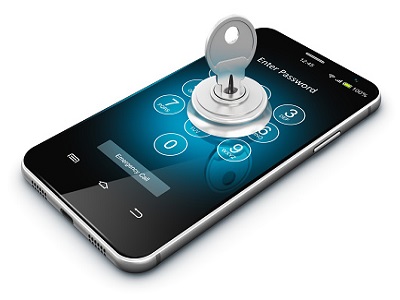Android Security: How to Keep Your Device Safe from Malware and Threats
Category : Smartphones | Sub Category : Smartphones Posted on 2025-04-25 15:19:35

Android
smartphones and tablets have become a vital part of our lives, storing a lot of
personal and sensitive information. Because these gadgets play such an
important part in our everyday lives, they must be secure. While Android's open
environment provides freedom, it also exposes devices to possible security
vulnerabilities.
One of
the most effective strategies to improve security is to update your Android
smartphone on a regular basis. Android upgrades frequently include critical
security patches that address vulnerabilities. To check for updates, navigate
to "Settings," then "Software Update" or "System
Updates."
The
Google Play Store is the major source for Android apps, and it adds security by
screening apps for malware. Sideloading software from other sources, often
known as "sideloading," might be dangerous. To reduce the possibility
of encountering dangerous malware, only install programs from reliable sources.
Examine
the permissions that applications seek before installing them. Be wary if an
app requests unneeded rights, like as access to your contacts, camera, or
location, when it has no genuine purpose to do so. App permissions may be
managed in the device's settings.
Consider
downloading and installing a trustworthy Android security app from a respected
vendor. These programs can detect malware, give real-time security, and have
anti-phishing capabilities. Avast, Norton, and Bitdefender are all popular
choices.
Google
Play Protect is a built-in security tool from Google that monitors your device
and installs applications for risks on a regular basis. Enabling it is as
simple as heading to "Settings," then "Security," and then
selecting "Google Play Protect."
Set a
strong password, or PIN, or utilize biometric authentication techniques such as
fingerprint or face recognition. These safeguards assist in preventing unwanted
access to your device, which is especially important if it is lost or stolen.
Smartphone
encryption protects the data on your Android smartphone by transforming it into
an unreadable format. Device encryption may be enabled in your device's
security settings.
Avoid
connecting to insecure public Wi-Fi networks, as they might be vulnerable to
eavesdropping and other security hazards. When connected to public Wi-Fi, use a
VPN to secure your data.
Backing
up your data assures that you will not lose vital information in the case of a
security breach or device loss. Android includes built-in backup tools, such as
Google Drive, to automatically back up your data.
Keep
up to date on common security risks and recommended practices for remaining
secure. Many security difficulties may be avoided by being aware of possible
hazards and exercising caution when clicking on links or downloading files.
Learn
how to use Android's "Find My Device" function, which allows you to
remotely track, lock, or erase your smartphone if it is misplaced or stolen.
This feature can help protect your data.
In
conclusion, the security of Android smartphones is a vital component of owning
and using them. You can dramatically lower the danger of malware and threats
infiltrating your device and personal data by following these tactics and best
practices. Keeping your device up to date, installing apps from reputable
sources, and enabling security features will allow you to experience the full
capabilities of your Android smartphone while keeping it safe and secure.
You
can visit our website https://www.nextelle.us.
#Android
#smartphones #smartphone #phone #mobile #mobilephones #Mobilephone
#NextelleWireless
Search
Categories
Recent News
- Introducing the Latest Model of Apple iPhone: Cutting-Edge at Your Fingertips
- The Latest Model of Samsung Galaxy: A Remarkable Blend of Innovation and Style
- Unlimited Smartphone Plans for You
- The Latest Buzz in Smartphone News
- The Best Smartphone Options Available
- Existing Wireless Connection: Enabling Connectivity Beyond Boundaries
- Wireless Connection Devices: Revolutionizing Connectivity
- Smartphone Audio Quality: A New Era of Immersive Sound